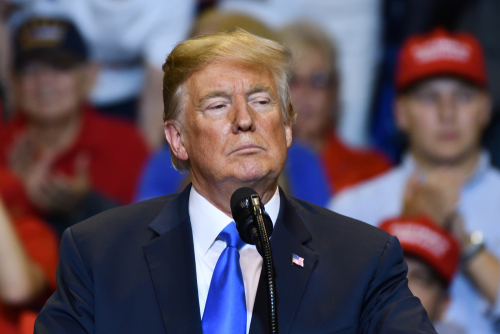Zelensky’s surprising statement about Trump’s potential impact on the Ukraine war sparks debate on the future of international diplomacy.
Zelensky’s Shifting Stance on Trump and Peace Talks
Ukrainian President Volodymyr Zelensky has made a surprising reversal in his stance on peace talks with Russia, suggesting that the ongoing war could potentially end faster under a Trump administration. This unexpected statement has sparked discussions about the future of international diplomacy and conflict resolution in the region. Zelensky’s comments highlight the importance of U.S. political directions in global conflict scenarios and open a discourse on how different leadership approaches to diplomacy can significantly impact the course of war.
🚨 BREAKING: Ukraine President Zelensky just said that Trump will end the war with Russia faster thanks to his policies – Ukraine media
"Certainly, with the policies of this team that will now lead the White House, the war will end sooner. This is their approach, their promise… pic.twitter.com/62R0DgsQK9
— Eric Daugherty (@EricLDaugh) November 15, 2024
The Ukrainian leader’s new perspective seems to be rooted in the anticipation of potential changes in U.S. foreign policy should former President Donald Trump retake office. Zelensky’s belief centers on the idea that Trump’s known preference for direct, possibly transactional foreign policy might accelerate negotiations or bring novel diplomatic strategies to the forefront. This shift in tone from the Ukrainian president has caught the attention of political analysts worldwide.
Trump’s Proposed Approach to Ending the Conflict
Trump has expressed intentions to end the conflict quickly, proposing peace talks and a plan that involves creating a buffer zone and securing Ukraine’s commitment not to join NATO for two decades. This approach aligns with Trump’s typical style of deal-making and his focus on swift resolutions. The former president’s foreign policy team, including figures like Marco Rubio and Peter Hegseth, appears to be prioritizing a quick settlement of the Ukraine conflict, with their primary focus shifting towards China.
Ukraine’s sovereign bonds have surged in price as investors bet that the incoming US administration will push for a quick end to the war with Russia https://t.co/qy6yOMowpO
— max seddon (@maxseddon) November 14, 2024
In response to these potential changes, Zelensky is reportedly strategizing to align with Trump’s transactional approach. The Ukrainian president is considering offering military support to Europe and access to natural resources as part of his negotiation strategy. This adaptive stance demonstrates Ukraine’s recognition of the need to adjust its diplomatic approach in light of potential shifts in U.S. leadership.
European Concerns and Potential Responses
While European support for Ukraine remains strong, there are growing concerns about the sustainability of this support without significant U.S. involvement. The potential for a Trump presidency has led some European leaders to consider more direct involvement in the conflict. French President Emmanuel Macron and Lithuanian Foreign Minister Gabrielius Landsbergis have suggested that European countries may need to consider sending troops to Ukraine if U.S. aid diminishes.
Additionally, there is increasing worry in Europe about Russian interference in elections in former Soviet republics like Georgia and Moldova, fueling fears of Russia’s imperialist ambitions. These concerns are shaping the European response to the ongoing conflict and potential diplomatic shifts.
Renewed Diplomatic Efforts
The potential for Russia-Ukraine negotiations appears to be gaining momentum following Trump’s election win. A recent phone call between Russian President Vladimir Putin and German Chancellor Olaf Scholz indicates a potential for renewed talks, with both leaders agreeing to stay in contact. This communication marks the first direct conversation between the two leaders in almost two years, signaling a possible thaw in diplomatic relations.
The Kremlin has stated that Russia remains open to negotiations based on proposals announced in June. However, they continue to demand a halt to Western aid to Ukraine before considering peace talks. This stance presents a significant challenge to potential negotiations, as Western support has been crucial for Ukraine’s defense efforts.
Looking Ahead: Uncertainties and Possibilities
As the international community grapples with these developments, the future of the Ukraine-Russia conflict remains uncertain. The potential for a Trump presidency is already influencing diplomatic moves and strategic considerations across Europe and beyond. Ukrainian officials are reportedly prioritizing security guarantees over territorial boundaries in potential peace talks, indicating a possible shift in negotiation priorities.
The coming months will likely see increased diplomatic activity as various stakeholders position themselves for potential changes in U.S. foreign policy. The international community will be watching closely to see how these developments unfold and what they might mean for the future of Ukraine, European security, and global diplomatic relations.
Sources:

